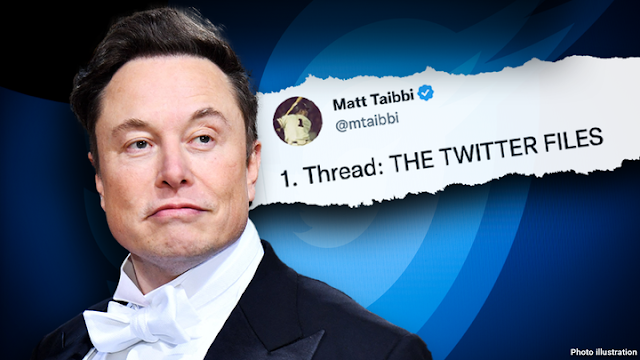The other day Bill Kristol tweeted something that I found fascinating. Someone had tweeted a picture of "manly man" Seb Gorka holding a rifle. Kristol responded with this:
Other than recognizing the name, I didn't know anything about Umberto Eco. I was curious what he meant by "Ur-Fascist," so I googled and found the article Eco had written about it. He was born in 1932 and grew up under Italy's Mussolini. Most of the article contains references to various forms of fascism with specifics that - not being a historian - I am not acquainted with. But eventually it comes down to this central point he was making (emphasis mine):"Since both permanent war and heroism are difficult games to play, the Ur-Fascist transfers his will to power to sexual matters...Since even sex is a difficult game to play, the Ur-Fascist hero tends to play with weapons—doing so becomes an ersatz phallic exercise."
— Bill Kristol (@BillKristol) December 12, 2022
--Umberto Eco https://t.co/ljlN1D0Lgc
The contradictory picture I describe was not the result of tolerance but of political and ideological discombobulation. But it was a rigid discombobulation, a structured confusion. Fascism was philosophically out of joint, but emotionally it was firmly fastened to some archetypal foundations...Fascism became an all-purpose term because one can eliminate from a fascist regime one or more features, and it will still be recognizable as fascist.
So Eco invented the word Ur-Fascist.
[I]n spite of this fuzziness, I think it is possible to outline a list of features that are typical of what I would like to call Ur-Fascism, or Eternal Fascism. These features cannot be organized into a system; many of them contradict each other, and are also typical of other kinds of despotism or fanaticism. But it is enough that one of them be present to allow fascism to coagulate around it.
He goes on to list 14 features of Ur-Fascism, one of which is quoted by Bill Kristol in the tweet up above. Here they are:
1. The first feature of Ur-Fascism is the cult of tradition...As a consequence, there can be no advancement of learning. Truth has been already spelled out once and for all, and we can only keep interpreting its obscure message.2. Traditionalism implies the rejection of modernism...The Enlightenment, the Age of Reason, is seen as the beginning of modern depravity. In this sense Ur-Fascism can be defined as irrationalism.
3. Irrationalism also depends on the cult of action for action’s sake. Action being beautiful in itself, it must be taken before, or without, any previous reflection. Thinking is a form of emasculation. Therefore culture is suspect insofar as it is identified with critical attitudes. Distrust of the intellectual world has always been a symptom of Ur-Fascism...
4. No syncretistic faith can withstand analytical criticism. The critical spirit makes distinctions, and to distinguish is a sign of modernism...For Ur-Fascism, disagreement is treason.
5. Besides, disagreement is a sign of diversity. Ur-Fascism grows up and seeks for consensus by exploiting and exacerbating the natural fear of difference. The first appeal of a fascist or prematurely fascist movement is an appeal against the intruders. Thus Ur-Fascism is racist by definition.
6. Ur-Fascism derives from individual or social frustration. That is why one of the most typical features of the historical fascism was the appeal to a frustrated middle class, a class suffering from an economic crisis or feelings of political humiliation, and frightened by the pressure of lower social groups...
7. To people who feel deprived of a clear social identity, Ur-Fascism says that their only privilege is the most common one, to be born in the same country. This is the origin of nationalism...
8. The followers must feel humiliated by the ostentatious wealth and force of their enemies...However, the followers must be convinced that they can overwhelm the enemies. Thus, by a continuous shifting of rhetorical focus, the enemies are at the same time too strong and too weak...
9. For Ur-Fascism there is no struggle for life but, rather, life is lived for struggle. Thus pacifism is trafficking with the enemy. It is bad because life is permanent warfare. This, however, brings about an Armageddon complex. Since enemies have to be defeated, there must be a final battle, after which the movement will have control of the world...
10. Elitism is a typical aspect of any reactionary ideology, insofar as it is fundamentally aristocratic, and aristocratic and militaristic elitism cruelly implies contempt for the weak. Ur-Fascism can only advocate a popular elitism. Every citizen belongs to the best people of the world, the members of the party are the best among the citizens, every citizen can (or ought to) become a member of the party...
11. In such a perspective everybody is educated to become a hero. In every mythology the hero is an exceptional being, but in Ur-Fascist ideology, heroism is the norm. This cult of heroism is strictly linked with the cult of death...The Ur-Fascist hero is impatient to die. In his impatience, he more frequently sends other people to death.
12. Since both permanent war and heroism are difficult games to play, the Ur-Fascist transfers his will to power to sexual matters. This is the origin of machismo (which implies both disdain for women and intolerance and condemnation of nonstandard sexual habits, from chastity to homosexuality). Since even sex is a difficult game to play, the Ur-Fascist hero tends to play with weapons—doing so becomes an ersatz phallic exercise.
13. Ur-Fascism is based upon a selective populism, a qualitative populism, one might say...For Ur-Fascism, however, individuals as individuals have no rights, and the People is conceived as a quality, a monolithic entity expressing the Common Will. Since no large quantity of human beings can have a common will, the Leader pretends to be their interpreter...There is in our future a TV or Internet populism, in which the emotional response of a selected group of citizens can be presented and accepted as the Voice of the People.
14. Ur-Fascism speaks Newspeak...All the Nazi or Fascist schoolbooks made use of an impoverished vocabulary, and an elementary syntax, in order to limit the instruments for complex and critical reasoning.








